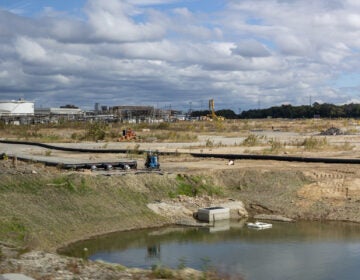DVRPC adds public comment feature to website
The Delaware Valley Regional Planning Commission is experimenting with ways of increasing citizen participation.
Beginning for July’s meeting, the DVRPC Board began accepting comments on agenda items scheduled for a vote.
Spokeswoman Candice Snyder called the change “an expansion of our outreach effort,” adding that the average person can’t make the board’s meetings, which occur during business hours.
She said that a link to the comment form would also be added to a drop-down menu to the DVRPC’s homepage in time for the board’s September meeting. There is no August meeting.
At the same time, Snyder said that the Regional Citizens Committee, the DVRPC’s citizen advisory group, is reorienting its focus toward the DVRPC’s work plan, the list of projects the DVRPC undertakes each fiscal year.
She said this was being done to address frustration certain RCC members felt when bringing up issues that the DVRPC wasn’t able to directly influence.
“We were trying to steer them in the direction of: Look at what we can take care of,” Snyder said.
RCC chairwoman Aissia Richardson said that, with this new focus, the group wasn’t going to be giving its opinion on proposed Transportation Improvement Plan, or TIP, items.
The New Jersey and Pennsylvania TIPs outline infrastructure spending in both Southeastern Pennsylvania and the portion of South Jersey covered by DVRPC. A project needs to be placed on the TIP by the DVRPC Board to receive federal funding.
“We haven’t been reviewing the action items, but we’re working on the work program,” she said.
These changes come after several acrimonious meetings of the RCC, which has become involved in a dispute between the commission and Pennsylvania Transit Expansion Coalition, or PA-TEC, a group that is critical of infrastructure spending in the region, particularly by SEPTA.
As a result of those confrontations, DVRPC leadership has said they’re considering reorganizing the RCC.
Snyder said the recent changes have nothing to do with that dispute and that the RCC can still weigh in on TIP proposals if it wants to.
“We were going in this direction anyway,” Snyder said, adding that DVRPC hasn’t yet decided what to do regarding the RCC’s future.
That wasn’t enough to satisfy PA-TEC leader Jon Frey, who said that his group remains “skeptical” of any changes to the RCC. In an e-mail, he called on the RCC to operate “in a more transparent and open fashion” and said that weighing in on TIP items was an important way the RCC could influence regional planning decisions.
Contact the reporter at acampisi@planphilly.com
WHYY is your source for fact-based, in-depth journalism and information. As a nonprofit organization, we rely on financial support from readers like you. Please give today.






